New Giant Defy is 'lighter and smoother' without resorting to 'gimmicks'
Redesigned frameset also features wider tire clearance while new seatpost and bars are also created with comfort in mind
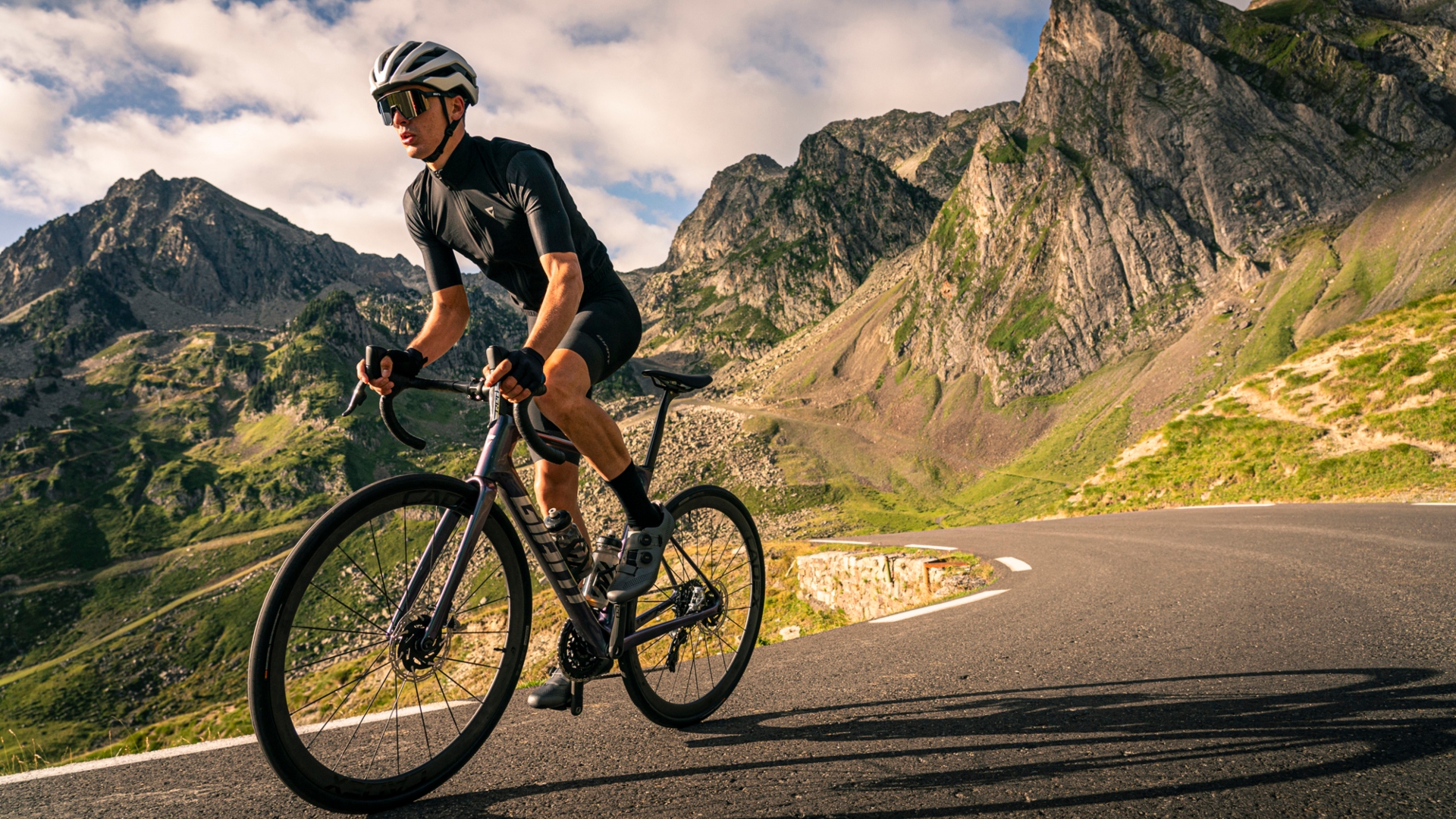
Giant has updated its popular endurance road bike, the Defy.
The new line up features three models - the Advanced SL, the Advanced Pro and the Advanced - with a total of nine bikes ranging in price from $3,000 / £2,229 to $12,000 / £11,499.
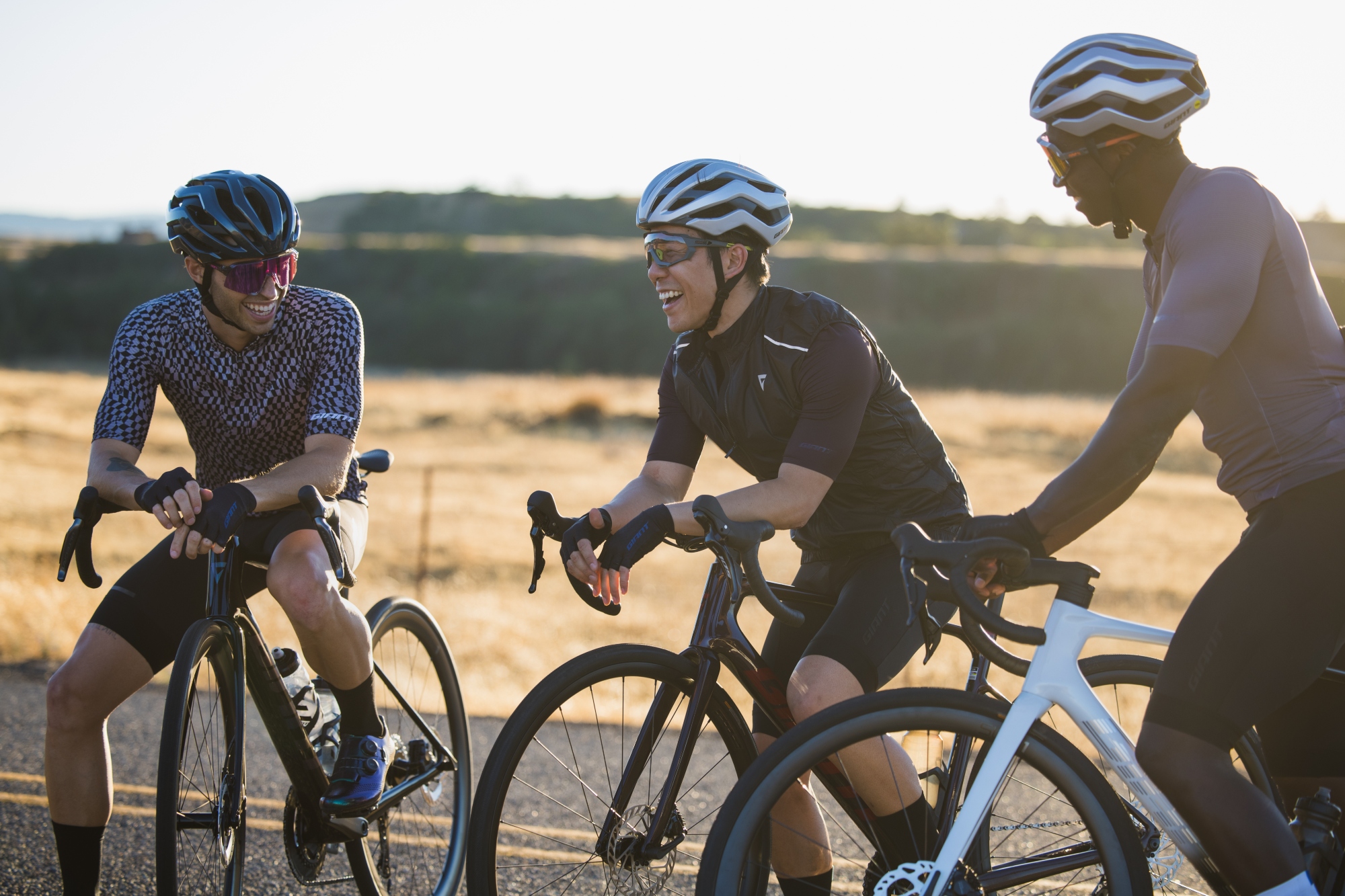
Headline features include a redesigned frameset that’s shed a few grams, increased tire clearance and a new D-Fuse handlebar and seatpost designed to make the Defy more comfortable to ride.
Together it adds up to a bike that Giant says is “lighter, smoother and more efficient” than the outgoing model, without resorting to “gimmicks”. While this may be a little less glamorous than talk of watts saved, when it comes to an endurance all-rounder suited to the many, rather than the few, these are attributes we can all get behind.
Frameset
Despite the ‘all-new’ frameset, it appears that Giant has chosen to build on the innovations of previous models rather than adopt any radical new technology in the pursuit of its goals. This means no holes in frames, decouplers or suspension devices, a reflection of Giant’s desire to improve the performance of the Defy “without overcomplicating it”.
Instead it has focused on the carbon layup to reduce weight, while improved compliance is attributed to a combination of design elements such as dropped rear seat stays and wider tire clearance, which now accommodates up to 38mm rubber, up from 35mm. Combined with the new D-Fuse seatpost and handlebars, which we’ll get on to later, they would appear to take care of the ‘lighter’ and ‘smoother’ goals. Giant believes it all adds up to a more efficient ride, where rider efforts are rewarded and fatigue is reduced.
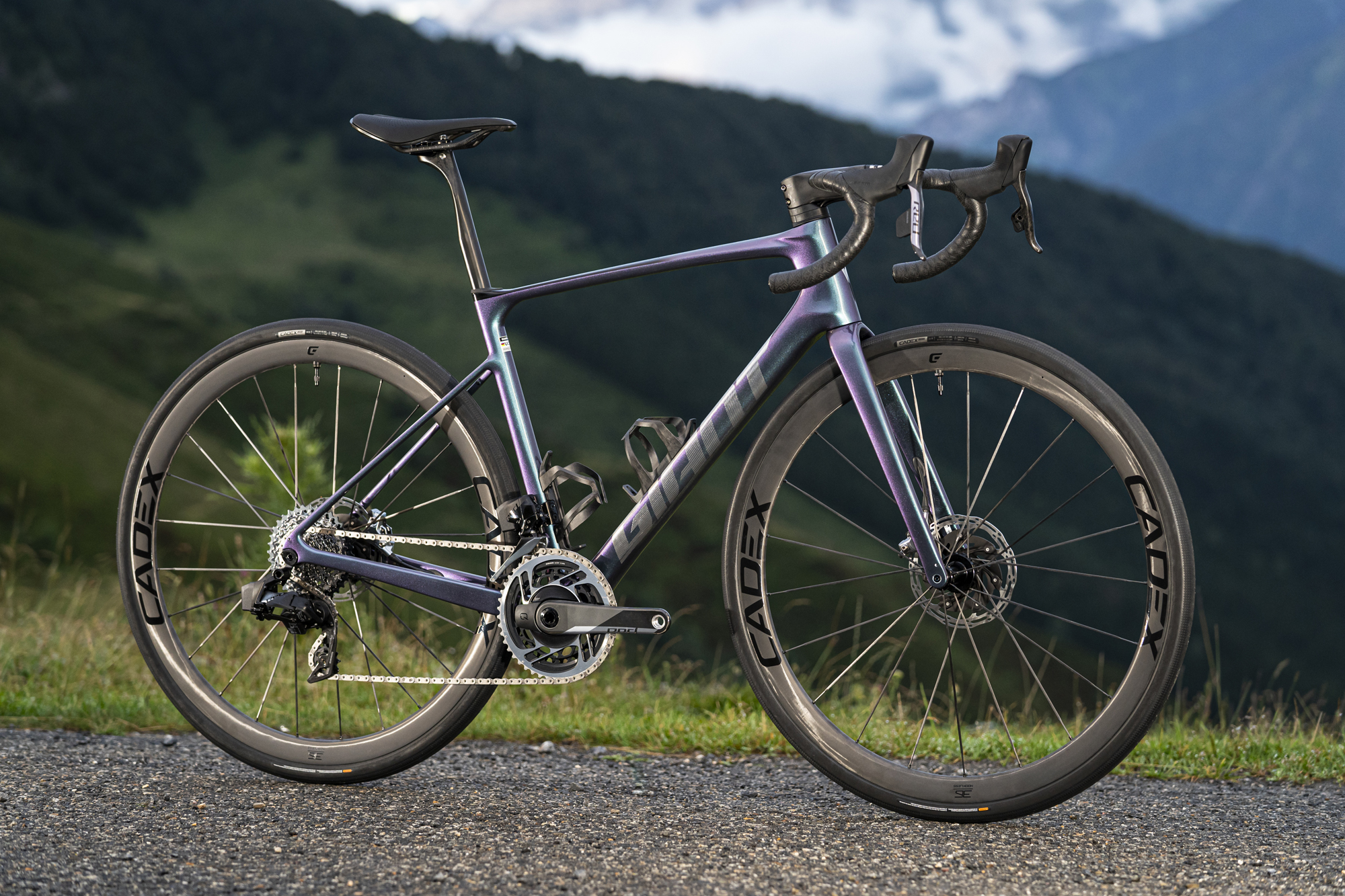
As the name suggests the Defy Advanced SL frameset uses cutting-edge methods of construction. The carbon composite is strengthened using Giant’s Carbon Nanotube Technology, a microscopic polymer that makes the frame more resistant to impacts. The front end triangle of the SL frame is also constructed using larger sections of composite material, which means fewer pieces, less junctions and in turn less weight but greater strength. Elsewhere, the top tube is ‘grafted’ to the seat tube using filament and moulding; essentially it's a hand-weaving of the tubes followed by high-pressure re-moulding that’s again designed to reduce weight but improve the frame’s strength.
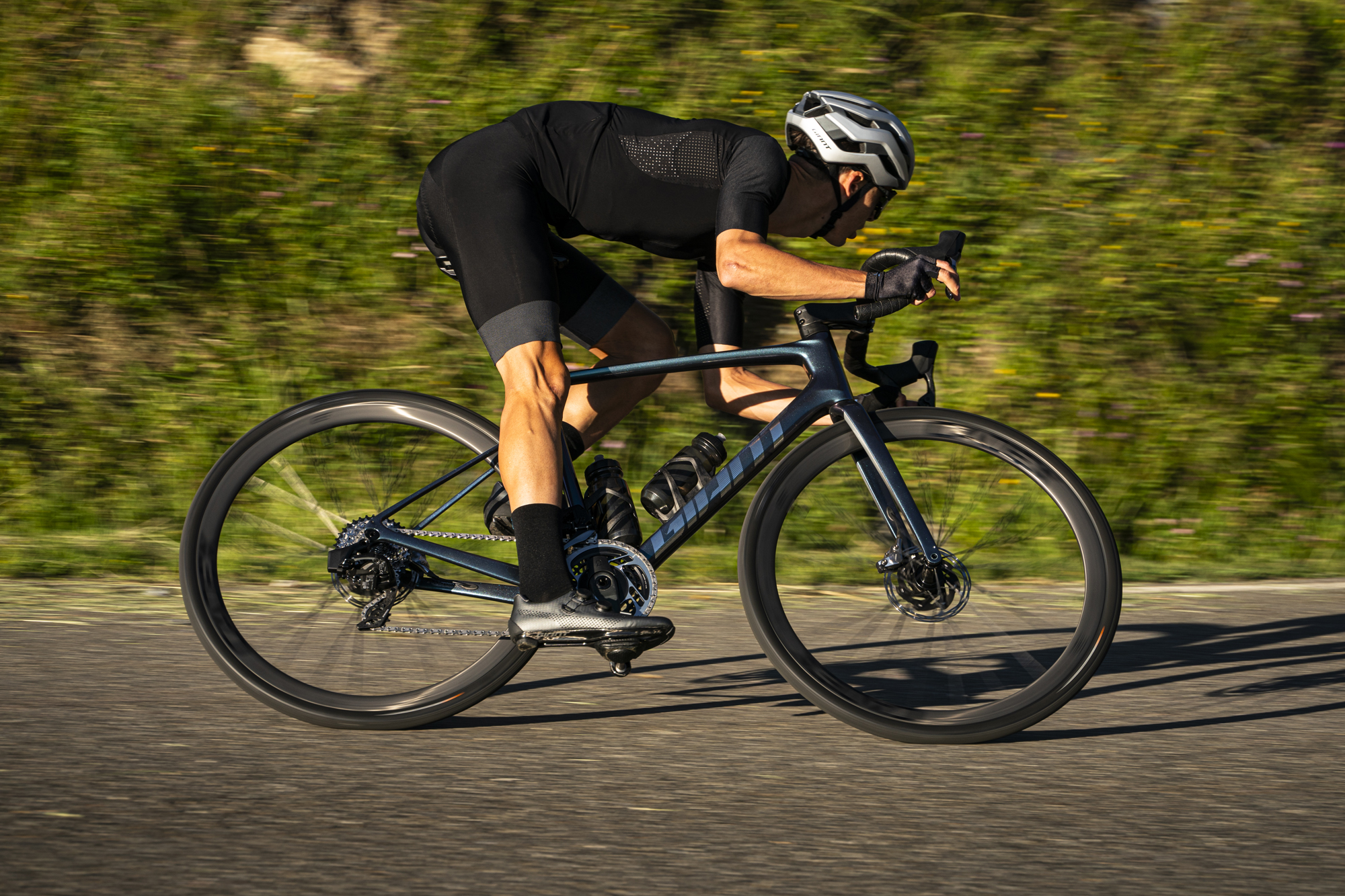
According to Giant, the SL layup uses “up to 132 intricately shaped swaths of composite to meet specific weight and stiffness parameters”. It results in a frameset that’s substantially lighter than the outgoing Defy; the top-of-the-range Advanced Pro frame now has a claimed weight of 785 grams for a size medium, which is almost 200 grams less than the previous model, while the new fork tips the scales at 345 grams, a 15 percent reduction. Together, according to Giant, it makes the new Defy Advanced SL version 228.4 grams lighter than the ‘old’ Advanced Pro frameset.
The Advanced Pro and Advanced frames, which use a different composite, are also lighter than their outgoing equivalents by almost 100 grams and now both weigh a claimed 860g in a medium. As for the forks, the Advanced Pro uses the same model as the SL, while the Advanced uses a different composite that brings the weight up to a claimed 381 grams - which is still 25g lighter than the outgoing Advanced Pro model.
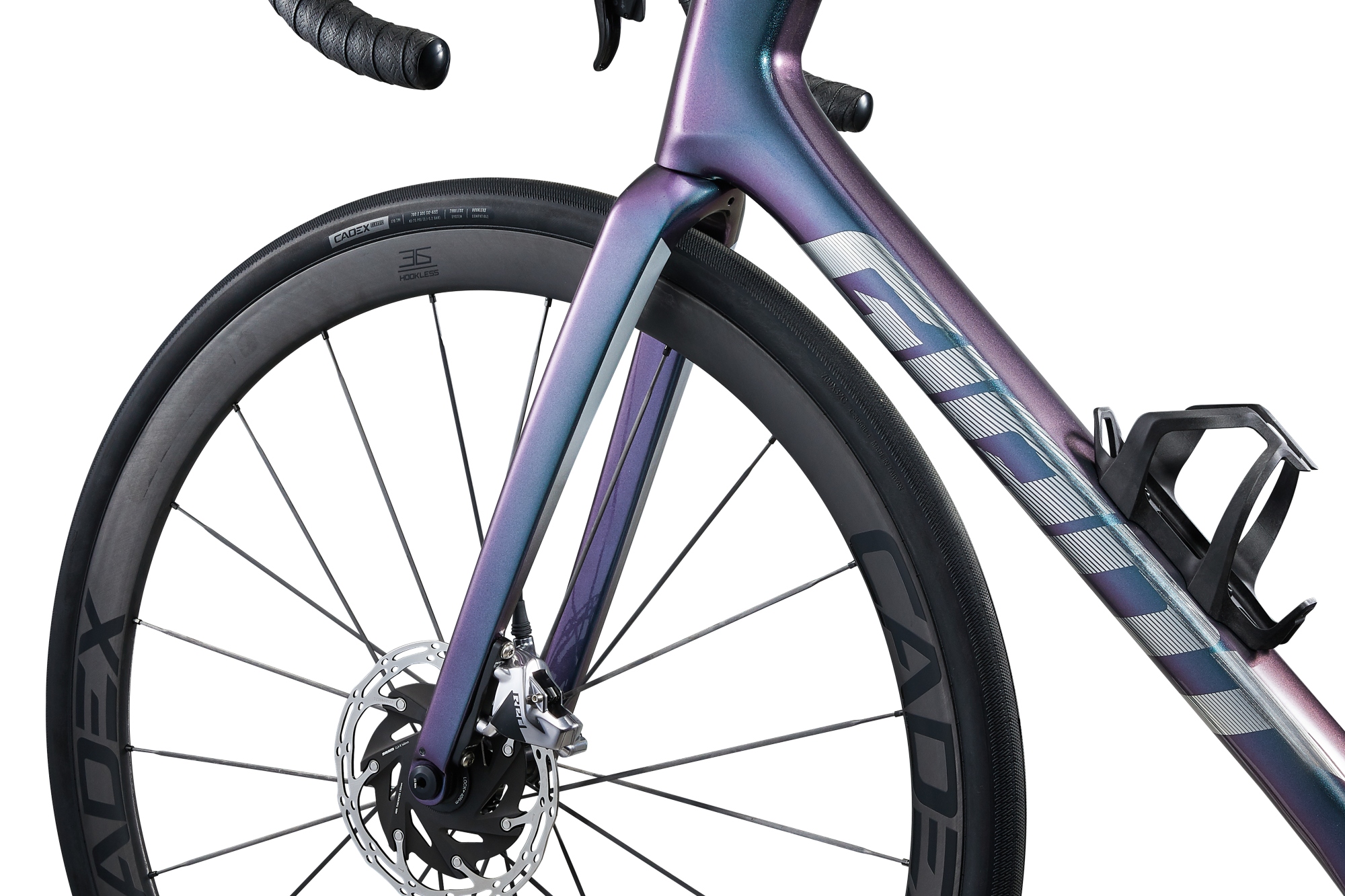
Of course, even for endurance bikes that place a premium on all-day comfort, stiffness still matters. Giant tested the new Defy to see how much the frameset flexed torsionally under load. It says its findings shows the Advanced SL provides 8.9% more transmission stiffness (a combination of both lateral and pedaling stiffness) than last year’s Advanced Pro frameset.
For the updated Pro model this number is greatly reduced, to less than 1% in fact, a result of the different composite used. However, given the reduction in the weight of the frameset, the new Advanced Pro is more efficient (stiffness-to-weight ratio) than the outgoing model to the tune of 11.2%. This efficiency number jumps to 28% for the top-of-the line Advanced SL frameset.
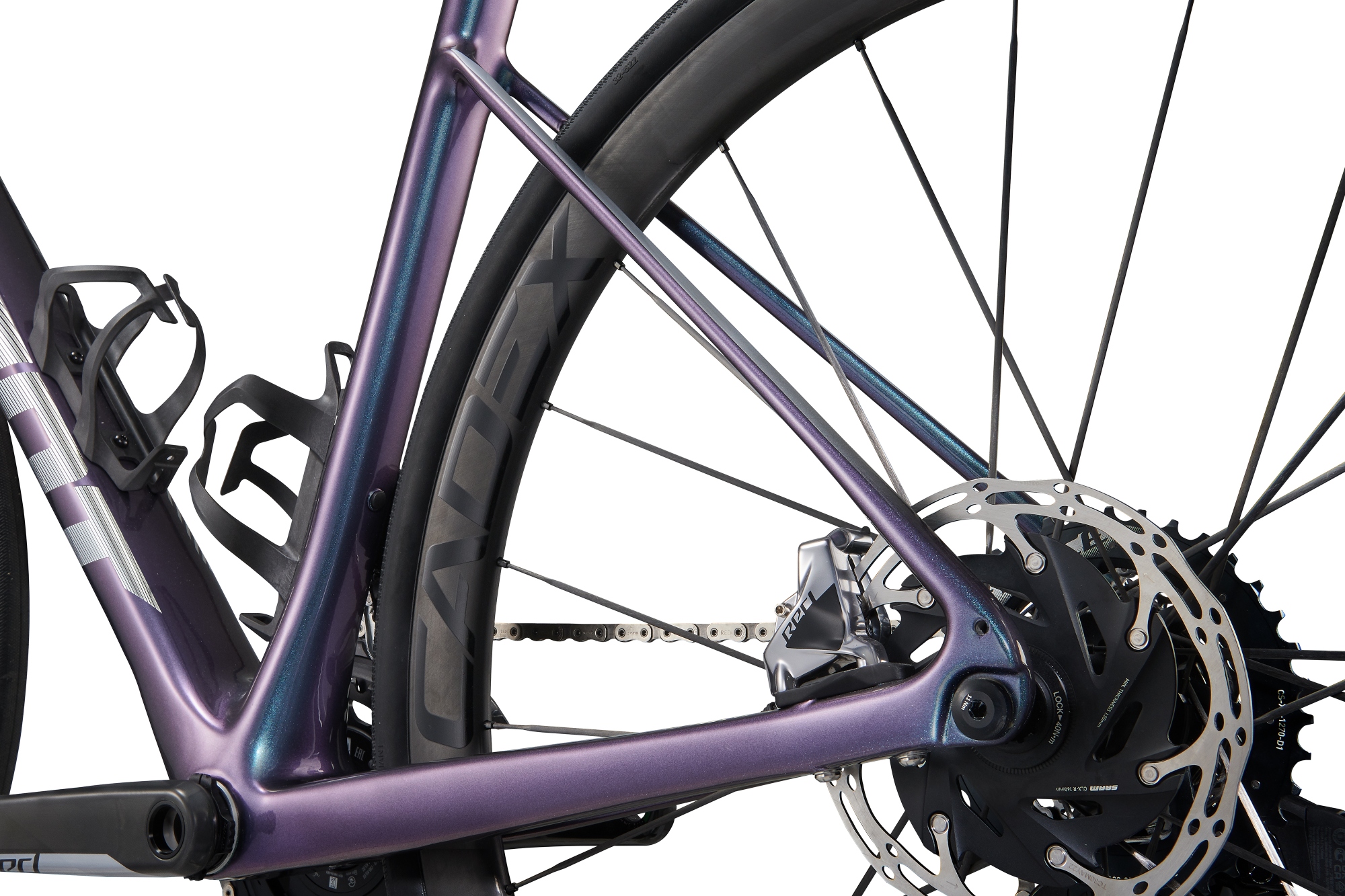
As for the frame geometry, the numbers are as you might expect for an endurance bike that, in the past, has also been ridden at the professional level, including Paris Roubaix. A size medium sees a stack height of 558mm and a reach measuring 379.8mm alongside a 72.5 degree headtube angle.
So not the aggressive geometry of the best aero race machines, but nothing too sedate either. With its integrated cabling, skinny dropped stays, beefy 86mm wide Powercore bottom bracket area and Overdrive Aero D-shaped fork steerer and spacers it boasts many of the hallmarks associated with modern performance-driven road bikes.
Components
Opting for a holistic approach to rider comfort, Giant has again leaned on its D-Fuse technology, originally created for its cyclocross riders and a fixture of the Defy range since 2018. The redesigned seatpost features a D-shaped composite shaft that is designed to flex (up to 7mm) and absorb vibrations. Combined with the aforementioned frame details it’s claimed to add up to 42 percent more compliance than previous Advanced Pro models.
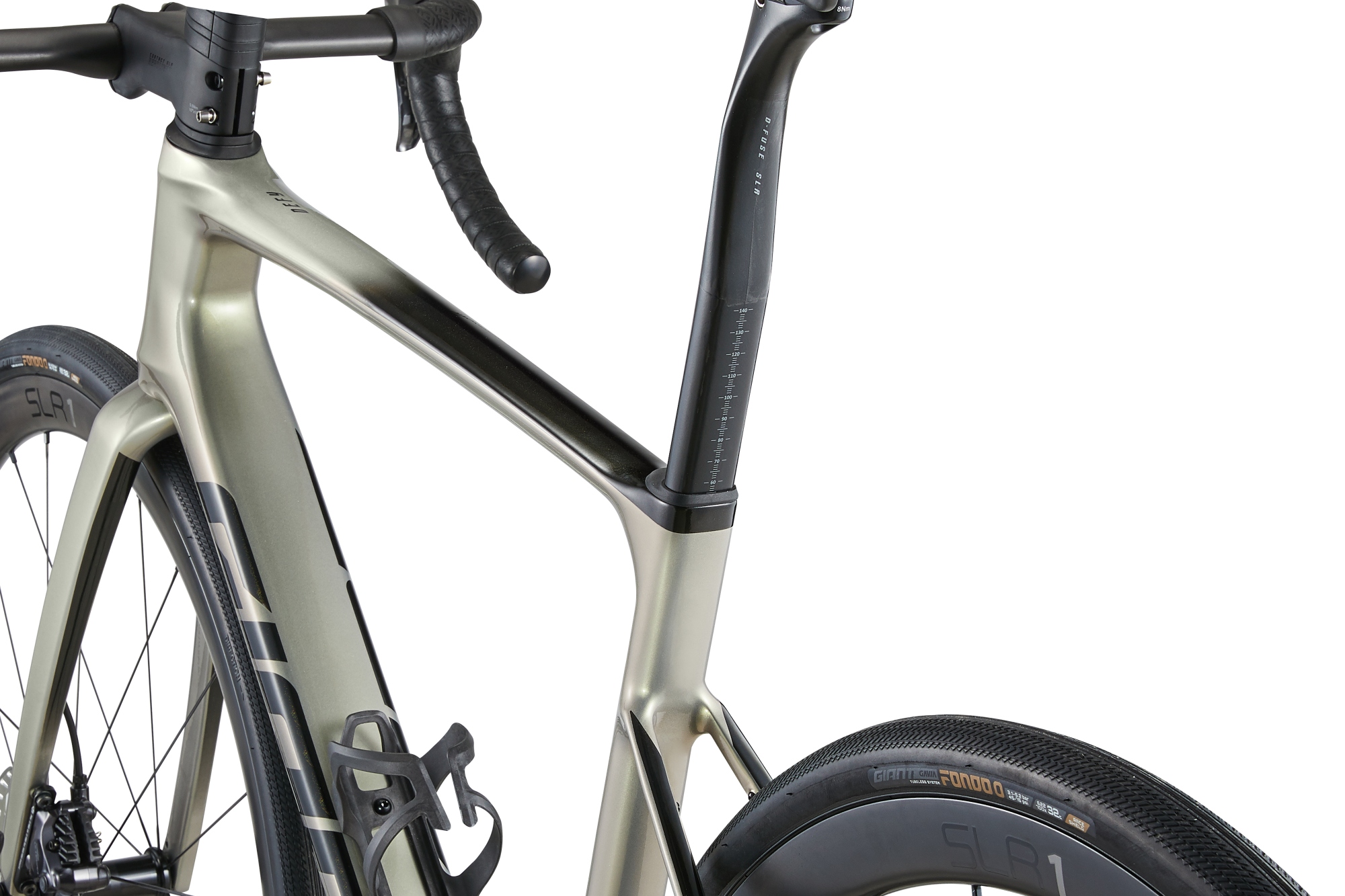
The new Contact SLR and SL handlebars, created especially for the Defy, also utilise the D-Fuse tubing on the tops of the bars. Giant says this means “greater downward compliance while at the same time increasing upward stiffness”. In terms of your ride experience that should translate to a reduction in road chatter felt through the hands while still providing the stiffness you need when you’re sprinting hard or climbing out of the saddle. Interestingly, they also incorporate an 8 degree flare, å la the best gravel bars to aid control and comfort.
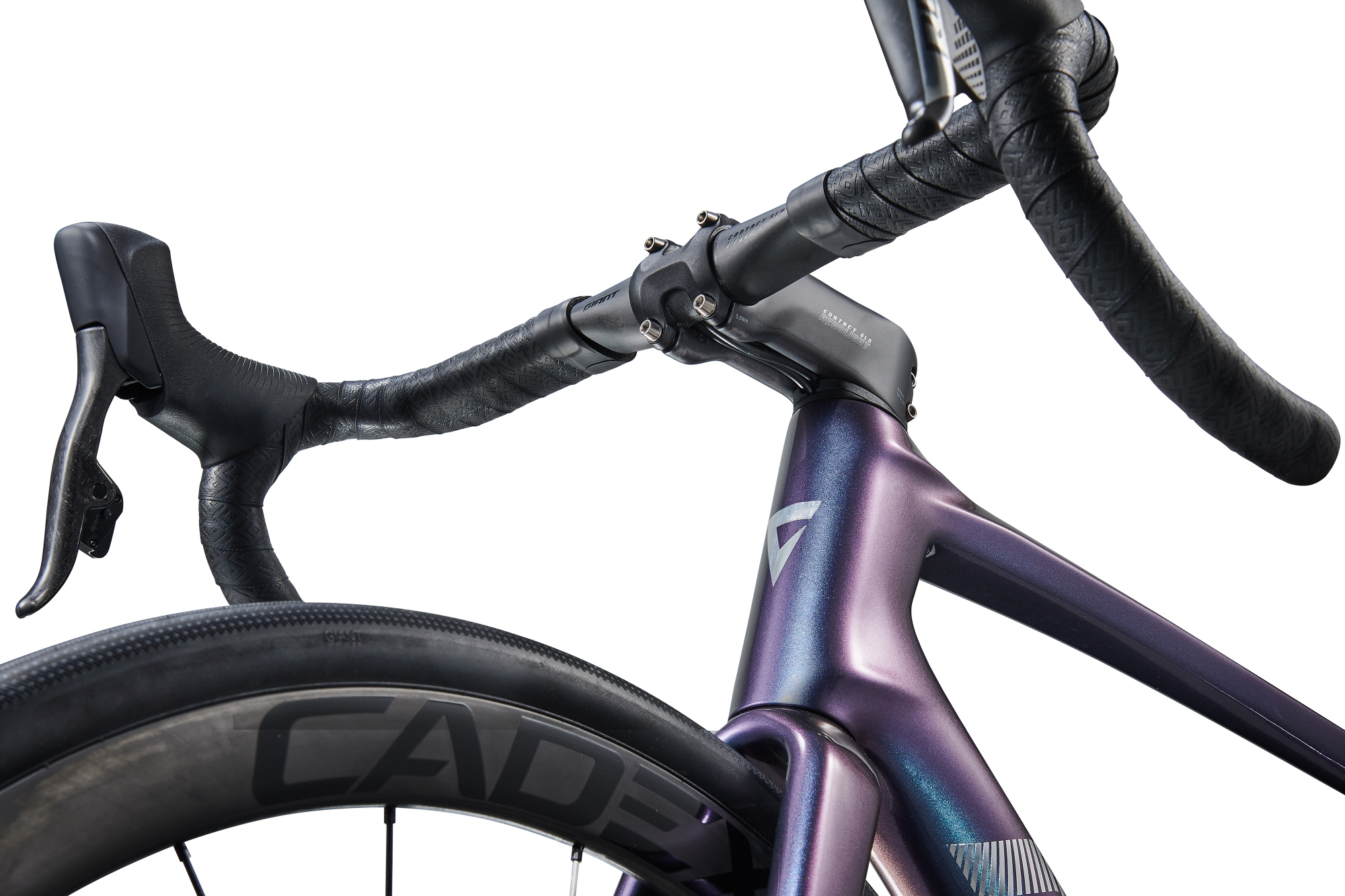
The bars are paired with a newly designed semi-integrated aero stem, the Contact Aerolight. It comes in three models depending on the series - the Aerolight SLR, the Aerolight SL and the Aerolight. The former two are made from a carbon composite, while the latter is aluminium. Both feature what Giant describes as an “aero-optimized” shape.
Range and pricing
The flagship Advanced SL 0 features a SRAM Red AXS groupset complete with an integrated Quarq power meter and Cadex 36 carbon wheels. The Advanced SL uses Shimano’s Ultegra Di2 groupset fitted with a Giant power meter and comes equipped with Giant SLR 1 carbon wheels. The SL 0 retails at $12,000 / £11.499, while the SL 1, which isn’t available in the US, costs £8,499.
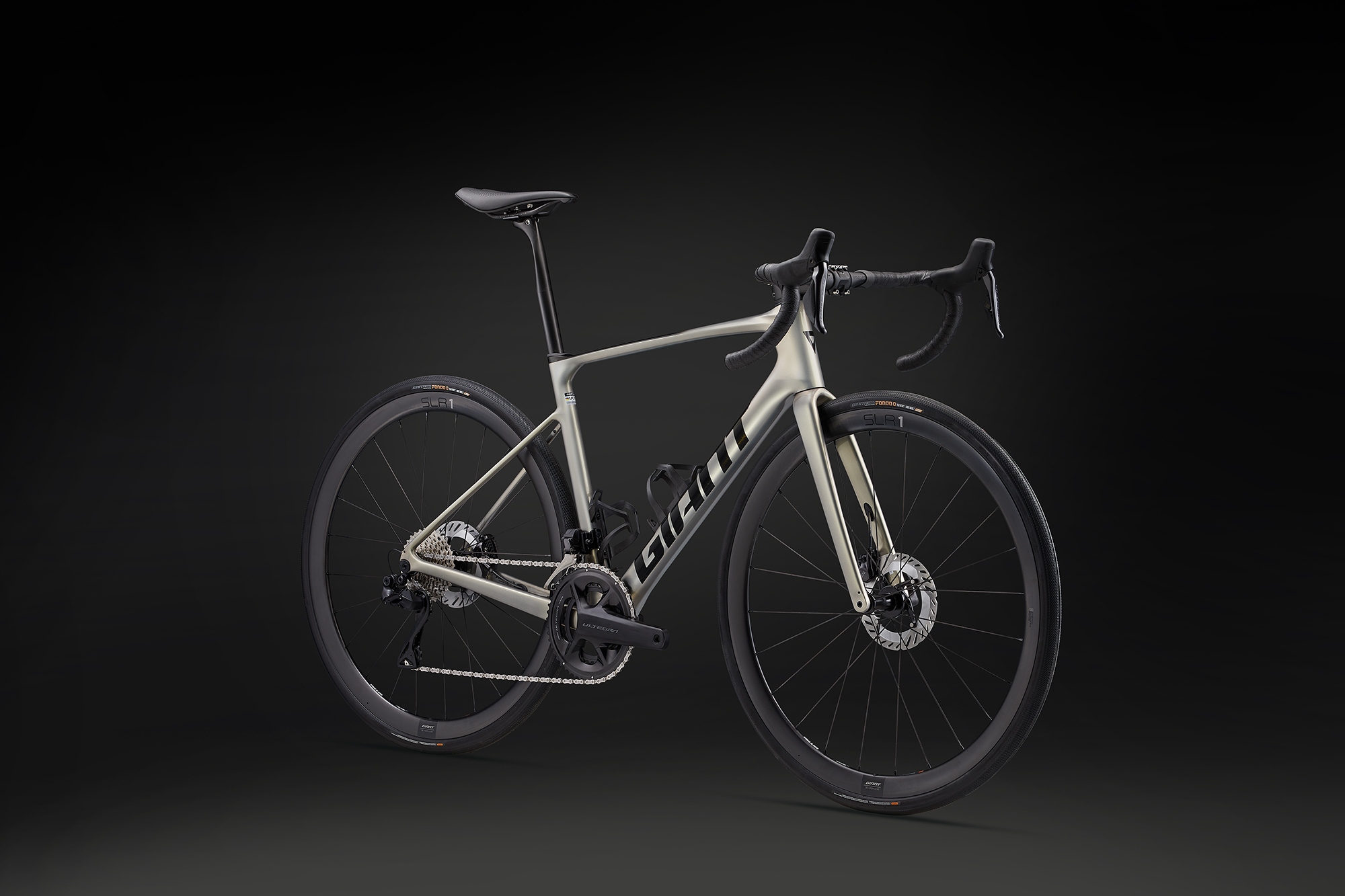
The Advanced Pro 0 features the same Ultegra groupset and Giant wheelset as the SL 1, while the Advanced Pro 1 uses Shimano’s 105 Di2. The Advanced Pro 2 also features a 105 groupset, but shifting is mechanical rather than electronic. The wheelset is Giant’s carbon SLR 2. The Pro 0 retails for $6,500 / £5,999; the Pro 1 for $5,000 / £4,599 and the Pro 2, unavailable in the US, for £3,499.
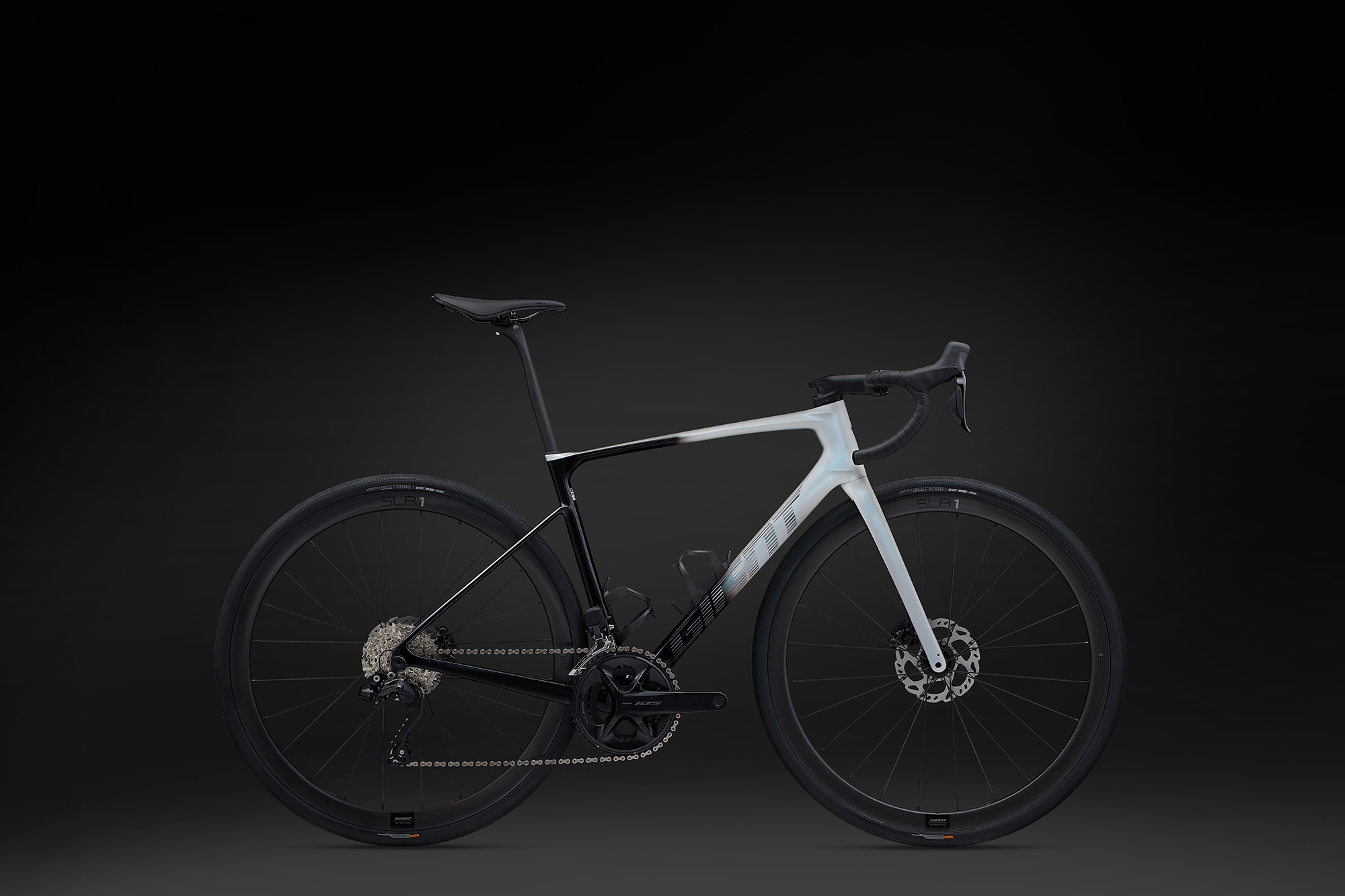
The Advanced series features four bikes: the 0, 1, 2 and 3. The Advanced 0, which isn't available in the US, includes a SRAM Rival AXS wireless groupset and a Giant P-R2 alloy wheelset. The Advanced 1 features Shimano 105 Di2 and the same P-R2 wheelset, while the Advanced 2 uses the mechanical version of the 105 groupset. The entry-level Advanced 3, again not available in the US, comes equipped with 10-speed Shimano Tiagra and S-R2 alloy wheelset. Prices are £3,299, $4,000 / £3,199, $3,000 / £2,699 and £2,299 respectively.
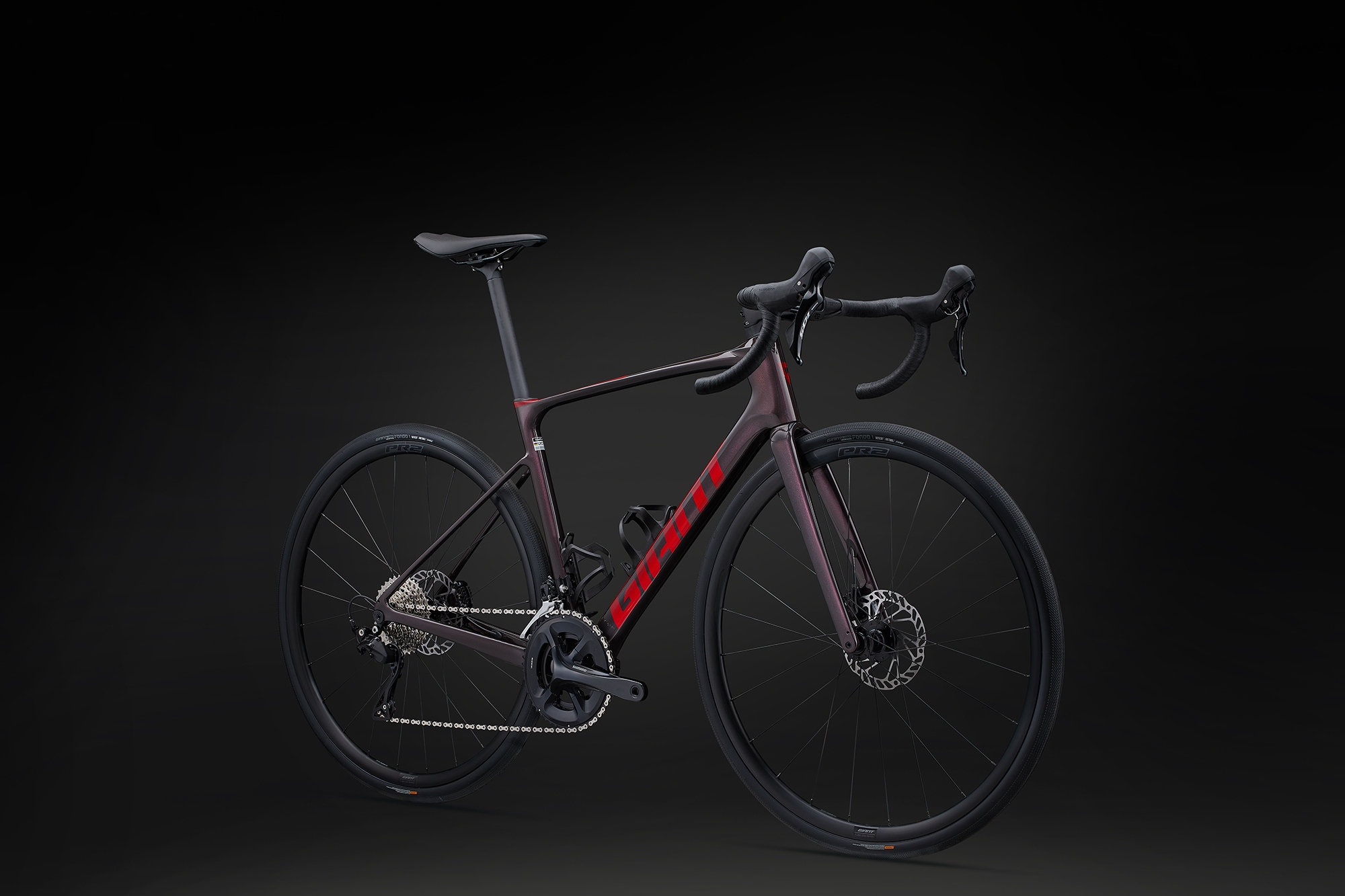
Sizes available for the Defy are XS, S, M, M/L, L, XL.
For more details on the new Giant Defy range visit giant-bicycles.com

Thank you for reading 20 articles this month* Join now for unlimited access
Enjoy your first month for just £1 / $1 / €1
*Read 5 free articles per month without a subscription

Join now for unlimited access
Try first month for just £1 / $1 / €1
Get The Leadout Newsletter
The latest race content, interviews, features, reviews and expert buying guides, direct to your inbox!
Luke Friend has worked as a writer, editor and copywriter for twenty five years. Across books, magazines and websites, he's covered a broad range of topics for a range of clients including Major League Baseball, the National Trust and the NHS. He has an MA in Professional Writing from Falmouth University and is a qualified bicycle mechanic. He has been a cycling enthusiast from an early age, partly due to watching the Tour de France on TV. He's a keen follower of bike racing to this day as well as a regular road and gravel rider.
-
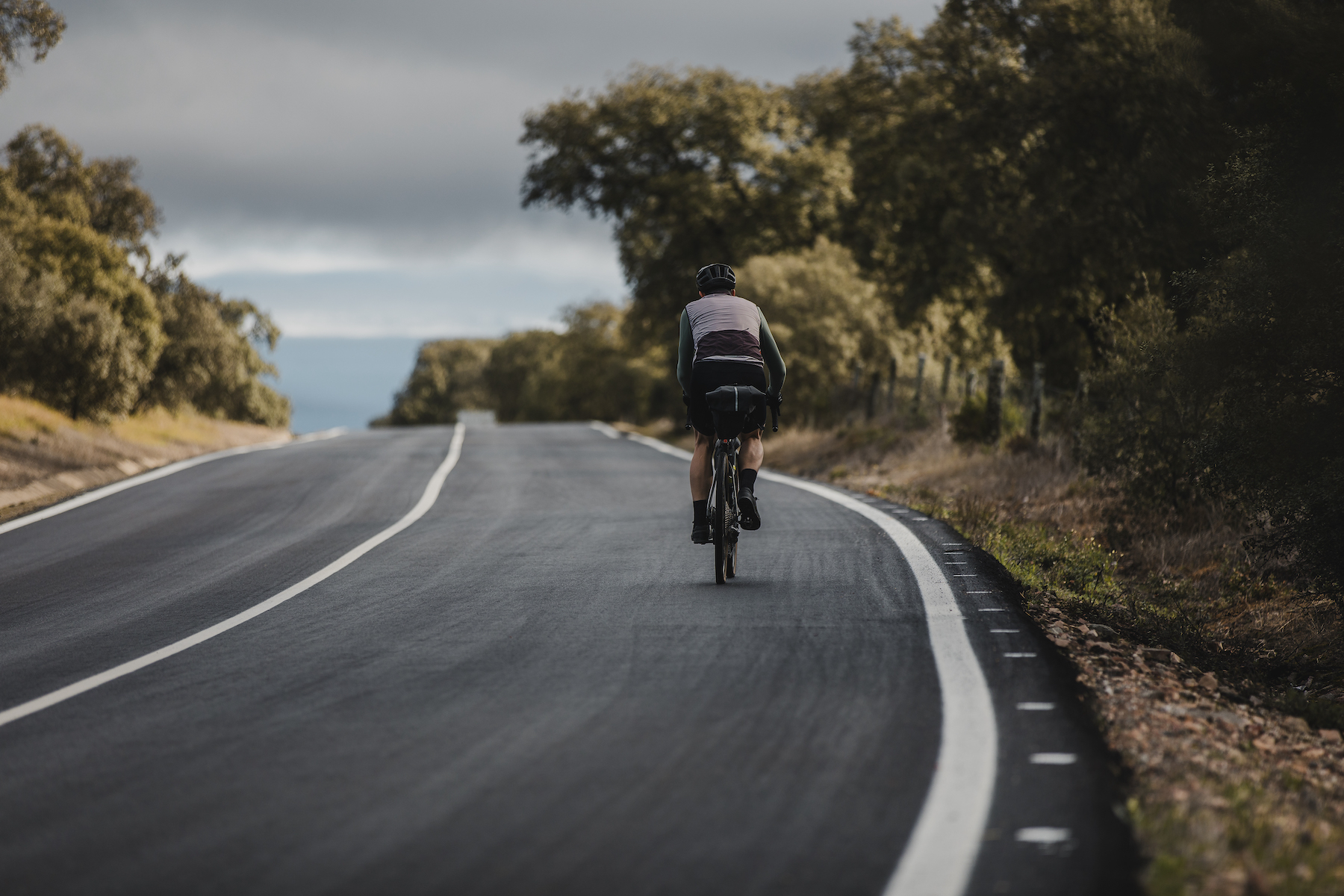 'This is the marriage venue, no?': how one rider ran the whole gamut of hallucinations in a single race
'This is the marriage venue, no?': how one rider ran the whole gamut of hallucinations in a single raceKabir Rachure's first RAAM was a crazy experience in more ways than one, he tells Cycling Weekly's Going Long podcast
By James Shrubsall
-
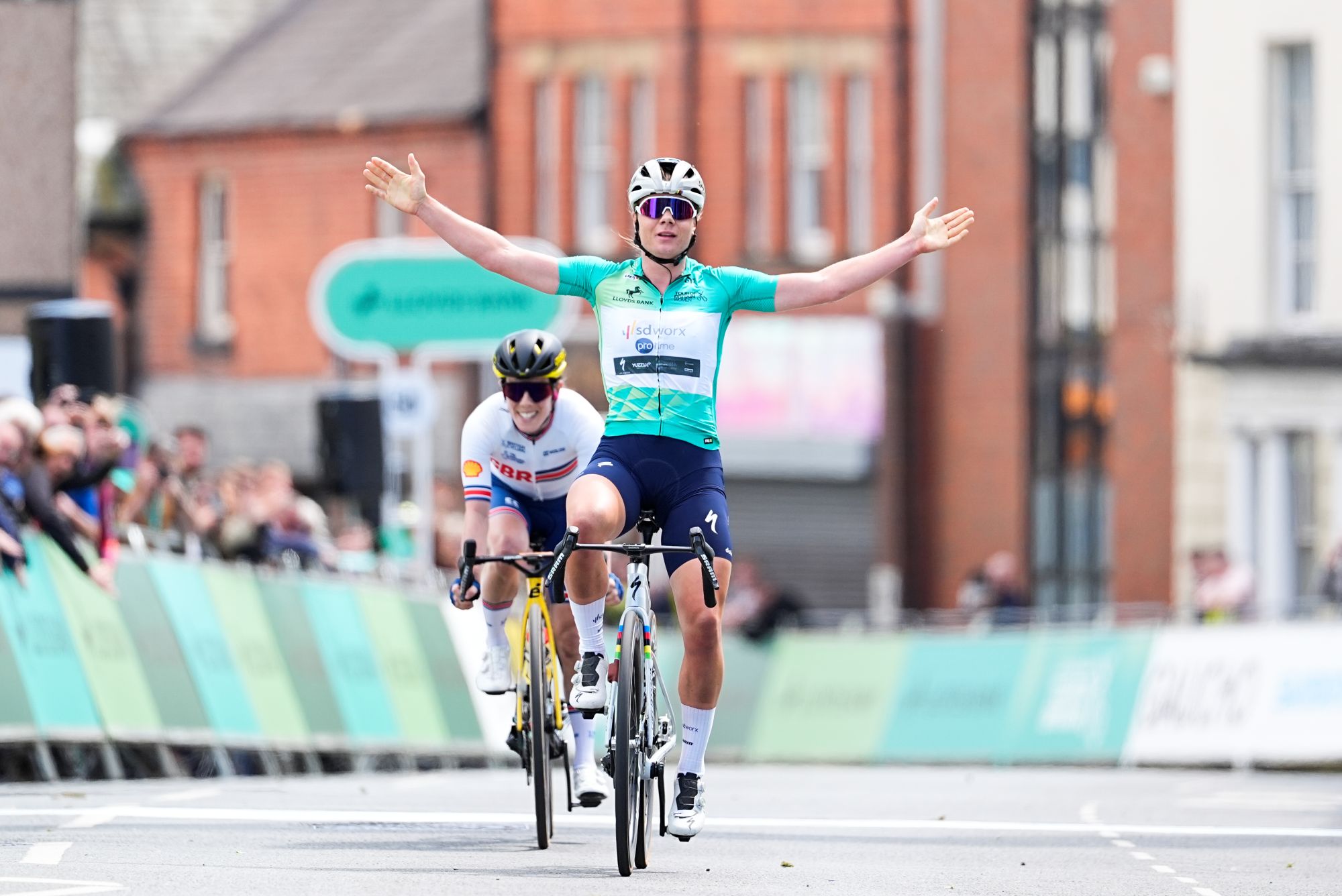 Full Tour of Britain Women route announced, taking place from North Yorkshire to Glasgow
Full Tour of Britain Women route announced, taking place from North Yorkshire to GlasgowBritish Cycling's Women's WorldTour four-stage race will take place in northern England and Scotland
By Tom Thewlis